Liz's Letter
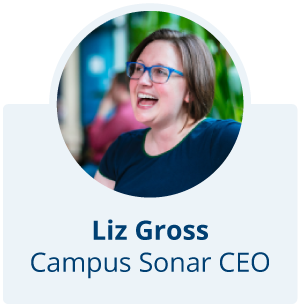
Hi there,
Thanks for taking the time between Zoom meetings to read this. Welcome, to the 174 of you receiving this newsletter for the first time, especially if you found us through our COVID-19 Briefings. I’m glad you’re here. We’re going to take a little walk down memory lane, which will lead us right to where we are today.
1,034 days ago, Steve and I first sat down to talk about social listening and higher education (he recorded the conversation). Here’s how I described it to him.
Social listening is like walking through the campus quad to hear what people are saying between classes or eavesdropping in the crowd during a campus event. It’s a little bit targeted because you know what you’re listening for, but it catches all of those conversations online when people are talking about you, not to you.
I hadn’t yet founded Campus Sonar, and I certainly never dreamed that campuses around the world would feel like ghost towns on a sunny day in April—that their quads would be empty and all events cancelled.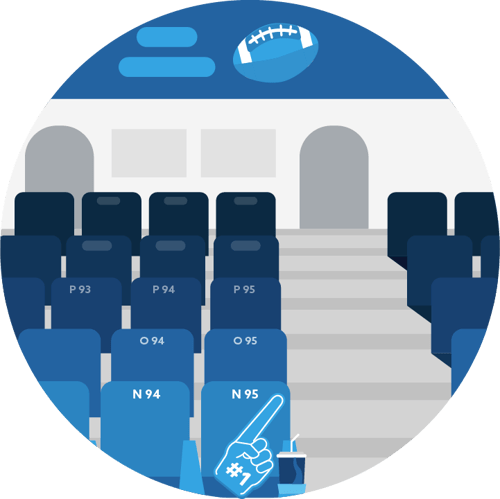
A lot has changed in those 1,034 days; heck even in the last 50. When classrooms are empty and there’s no home team on the field, social listening remains a viable way to understand your audience and build trust. It’s even more important when there’s no one on the quad and the only way to connect is through digital devices or snail mail.
For the last month, your campus has operated in crisis mode. It’s time to lift our heads up and look for ways to sustain our institutions and communities—to keep us together, even while we’re physically apart. Here are a few ways you can use social listening right now that contribute to both short- and long-term strategic goals like student engagement, recruitment, retention, alumni engagement, and reputation building.
- Spot opportunities to support struggling students by connecting them with campus or community resources
- Connect students to each other, alumni, or prospective/admitted students
- Identify questions or misinformation to address in campus communication
- Amplify stories of community members helping each other
- Spot and share positive faculty and staff news mentions
- Find individuals and organizations influencing your campus community who may be open to content or programming partnerships
- Connect with alumni who share stories about their time on campus with their online community
I just popped into the social listening data for one of our clients (a very small residential campus in the south). It took me less than a minute to find an alumnus with 10,000 plus Twitter followers reminiscing about his time on campus. More than a decade removed from his studies, he traced his successful career back to the values he developed while spending hours with caring professors. His story may inspire frustrated students to stick with their online courses, continue developing relationships with faculty, and ultimately graduate from the institution. This proud alumnus has appeared on the Today show and some young people view him as a hero. Yet he didn’t tag the college in his tweet. His authentic experience could easily be missed.
Our client received an alert about the tweet. They can use it as a jumping off point to develop stories that contribute to retention, recruitment, and potentially even fundraising, because they were listening.
When our campuses are quiet, we need to listen more carefully than ever.
We’ll get through this.

Make a Meaningful Connection
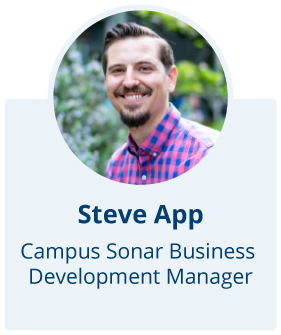 In the final few days of March, Hailey Owens faced a situation thousands of admitted college students could empathize with: her visit to Purdue University was cancelled. But for Hailey, this story had a happy ending. Her tweet, detailing the steps her family took to recreate a Purdue tour at home, went viral. Hailey only has 80 followers on Twitter, and she didn’t tag Purdue or use a branded hashtag in her tweet. And yet, her tweet received 24 retweets and nearly 1,000 likes. She also received a tsunami of responses, including responses from Purdue’s official Twitter account, Purdue Nursing, and many Purdue alumni, administrators, parents, and students, all of whom sent encouraging, supportive messages commending Hailey’s family for their creativity and letting Hailey know they couldn’t wait to meet her in the fall.
In the final few days of March, Hailey Owens faced a situation thousands of admitted college students could empathize with: her visit to Purdue University was cancelled. But for Hailey, this story had a happy ending. Her tweet, detailing the steps her family took to recreate a Purdue tour at home, went viral. Hailey only has 80 followers on Twitter, and she didn’t tag Purdue or use a branded hashtag in her tweet. And yet, her tweet received 24 retweets and nearly 1,000 likes. She also received a tsunami of responses, including responses from Purdue’s official Twitter account, Purdue Nursing, and many Purdue alumni, administrators, parents, and students, all of whom sent encouraging, supportive messages commending Hailey’s family for their creativity and letting Hailey know they couldn’t wait to meet her in the fall. 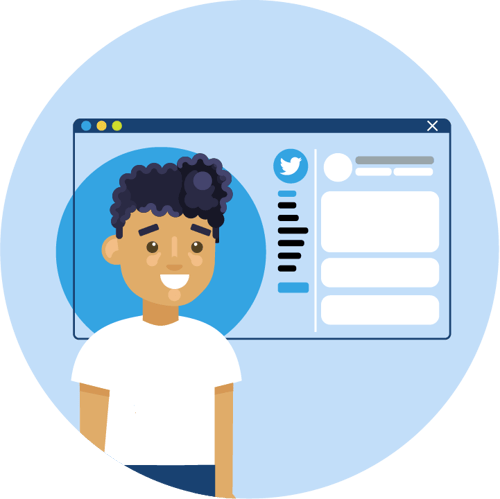
The collective response to Hailey’s tweet is a powerful reminder of the value of a community. Unfortunately, these moments aren’t happening frequently enough. For every tweet like Hailey’s, there are dozens of unanswered tweets and Reddit posts from similarly concerned, anxious students and their parents. An admitted student in Connecticut tweeted to a YouTube influencer asking for financial assistance so she could attend her “dream school.” She only mentioned the school by their nickname. A parent posted to the New Orleans tourism subreddit and asked if her daughter’s preferred campus was safe; they planned to visit shortly after Mardi Gras before those plans were derailed. An admitted student asked for help in the CSCareerQuestions subreddit; he was deciding between three offers and hadn’t visited any of the campuses.
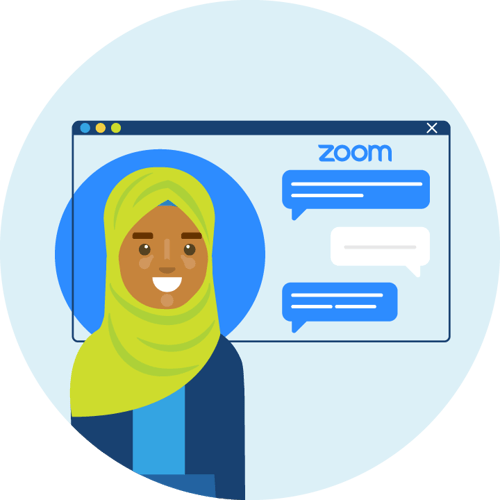
We are in the early stages of a yield and melt season unlike any we’ve experienced before. And while schools have been quick to pivot to virtual student events, they’ve been less responsive to the questions students and their parents ask beyond those controlled digital environments. That’s not from a lack of care; across the country, admissions professionals are attempting the impossible as they do their best to respond to emails and phone calls while simultaneously trying to care for children, order groceries, or just survive feelings of loneliness in the face of isolation.
We understand your challenges because we’re dealing with them too. And more importantly, we want to help, and we know we can. Right now, Campus Sonar is offering pro-rated versions of our Engagement Opportunity Alert service. During the COVID-19 pandemic, schools can purchase six months of these alerts for $6,000 or less, depending on conversation volume and complexity. With our Engagement Opportunity Alert service, we’ll find mentions of your campus from admitted students and their parents, even when they don’t tag your handle or use a known hashtag. When we find a mention, you’ll receive an automated alert, letting you focus your energy on responding to messages, rather than finding them. You’ll also gain access to a dashboard of these conversations, helping you understand what each anecdotal mention means when analyzed at scale. You’ll come to understand where and when your conversation takes place. You’ll also gain insights into conversation sentiment, emotion, and trending topics.

Most importantly, in an environment where campus visits are prohibited, senior years have been cut short, and chaos is the only constant, you’ll ensure that your admitted students feel like Hailey feels about Purdue.
Interested in learning more? Contact our Account Executive, Nicole Baldassarre, at nbaldassarre@campussonar.com for a personalized quote. Every conversation mention is an opportunity to make a meaningful connection with a prospective or admitted student. You can’t afford to miss those opportunities.
Content We're Consuming
What Sonarians are reading, watching, and listening to this month.
Enrollment Insights Podcast—Liz was the inaugural guest on Niche’s Enrollment Insights Podcast with Will Patch. She discussed social listening, how to use it for authentic enrollment marketing, and free social listening resources.
Gartner Says CMOs Should Take Four Immediate Actions to Prepare for Coronavirus-Related Issues—Four recommended actions for marketing leaders to take to prepare organizations for disruption related to the COVID-19 crisis. One of the keys is maintaining customer-centricity during times of stress, greater needs, and quickly changing expectations.
Redesigning College Admission: COVID-19, Access, and Equity—How the COVID-19 crisis offers potential opportunities to learn from this disruption in areas of access and equity, including early decision and early action, standardized testing, college visits, admissions travel, access to counseling, affordability, and more.

ThoughtFeeder Podcast, Episode 3: Social Listening in a Crisis—Liz joins Joel Goodman and J.S. Stansel to discuss our COVID-19 Higher Education Industry Briefings.
What (Some) Students Are Saying about the Switch to Remote Teaching and Learning—Social listening data gathered from Twitter posts offers insight into what students think about the current online learning environment.
Social Listening Resources from Campus Sonar—Find our reports, newsletters, handouts, and more, as well as general information on what social listening is and how you can use it for student engagement, reputation management, influencer identification, and many other campus outcomes. And find our free resources on the current state of higher education in the COVID-19 Higher Education Industry Briefings.
Brain Waves Blog Posts
This month we wrote about tips for working remotely, social media demographics for 2020, nerding out over a research project, evaluating what alumni think and feel, and common questions students ask about college on Reddit. Find the posts on our blog.
See Campus Sonar
The 2020 conference landscape is constantly evolving. We hope to see you this year, virtually or in person at an upcoming event. A few online events that we’re excited to be a part of:
Tell Us What You Think
Brain Waves newsletter is for you—help us shape it. Tell us what you think, send ideas, and let us know what would help you do your job better at info@campussonar.com. We want to know!
